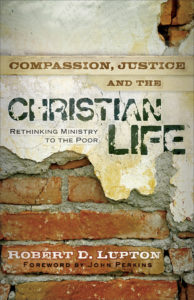This article is part of a progression
If you missed yesterday’s piece, please take a moment to read it. We discussed MLKj’s six principles of nonviolence.
Today, we’re going to take a look at the Six Steps of Nonviolent Social Change.
INFORMATION GATHERING
To understand and articulate an issue, problem or injustice facing a person, community, or institution you must do research. You must investigate and gather all vital information from all sides of the argument or issue so as to increase your understanding of the problem. You must become an expert on your opponent’s position.
This is something that gets me. In school when we do research papers or have debates, we take the time to research not only what we believe, but what the opposite side is in an effort to better articulate our ideas. We need to understand that they believe to “prove” why ours is better. But when we get to the real world, we ignore everything the other side says. We tend to think that the brute force of our will/attack/”points” will win them over. In reality, it normally pushes them away. Only once we take the time to understand where someone else is coming from so we can try to explain to them why their point isn’t as valid as they may think will anything ever change. Do you take the time to understand the other side, or just jump right into babbling your own views?
EDUCATION
It is essential to inform others, including your opposition, about your issue. This minimizes misunderstandings and gains you support and sympathy.
There’s a difference between running our mouths and helping others understand. We can say all the words in the world, but they won’t do much if we don’t say them in a way that the person whom we’re talking to is going to understand. Tailoring our approach to each person((as best we can)) is key in education as it produces the best environment for learning. Blanket statements and sayings are often misconstrued, so no learning happens. When discussing with others, do you try to educate them in a way they’ll understand, or do you say the same things over and over wondering why they just don’t get it?
PERSONAL COMMITMENT
Daily check and affirm your faith in the philosophy and methods of nonviolence. Eliminate hidden motives and prepare yourself to accept suffering, if necessary, in your work for justice.
I think this is key to everything in life. It’s not enough to say we’re on the side of something. We need to personally take ownership for the cause. And we need to do it daily as a reminder. We all know how hard it is to continue things sometimes. Do you take ownership of your cause, recognizing your not doing it for yourself but for others?
DISCUSSION/NEGOTIATION
Using grace, humor, and intelligence, confront the other party with a list of injustices and a plan for addressing and resolving these injustices. Look for what is positive in every action and statement the opposition makes. Do not seek to humiliate the opponent but to call forth the good in the opponent.
We have a habit as humans to try to push people down. Especially in discussions, we do our best to make them feel as little as possible. Perhaps it’s an ego thing. Perhaps it’s just an age-old tactic of arguing. Whatever the reason, when we seek to humiliate others we’re doing the same things that we’re fighting against: dehumanizing them. This will just anger them and make their views toward us stronger. When we treat them as humans- allowing them to be right at times, showing them grace, and using humor with them- while still pointing out their injustice, then we’ll have a better chance of reaching and agreement with them. How often do you find yourself seeking to humiliate or dehumanize your opposition in discussions?
DIRECT ACTION
These are actions taken when the opponent is unwilling to enter into, or remain in, discussion/negotiation. These actions impose a “creative tension” into the conflict, supplying moral pressure on your opponent to work with you in resolving the injustice.
Only once someone refuses to discuss with us should action be taken. These actions should have the purpose of pressuring justices to be addressed, but never in a violent way. These actions force the person to view us as humans and expose their injustice in a direct but peaceful way. Any action that promotes violence hinders the possibility of future discussions and should be avoided at all costs. Are you prone to action before discussion is attempted?
RECONCILIATION
Nonviolence seeks friendship and understanding with the opponent. Nonviolence does not seek to defeat the opponent. Nonviolence is directed against evil systems, forces, oppressive policies, unjust acts, but not against persons. Through reasoned compromise, both sides resolve the injustice with a plan of action. Each act of reconciliation is one step closer to the ‘Beloved Community.’
The end goal is not to win. It’s not to be better than the other. The end goal is to bring everyone together. To reconcile two parties that currently can’t see eye-to-eye. To bring everyone back into harmony, so peace abounds and justice is present for all. When you’re dealing situations do you find yourself hoping to win, rather than hoping to come together?
We all face countless issues today that can be addressed using MLKj’s models. For me, it’s an awkward combination of the rights of LGBT+ individuals, and the rights of Christians to hold their own beliefs. I have the obligation to support both sides. But I also have the obligation to call out either side when they resort to treating their opposers as less than human. (and I’ve done that with the LGBT+ community as well as the Christian community.)
For others, they may have issues facing them in regards to race (something that MLKj knew all too well) who, instead of continuing the ways of this historic man, are reverting back to more primal ways to express themselves. Yes, it sucks that it’s 2016 and we’re still dealing with the same issues that MLKj dealt with. But you know what? We always will. We’re a broken species. But being violent is not going to help. Violence breeds violence, and nothing will ever be accomplished. Only once we stand up and say, “no more violence. we need change. but it needs to happen through discussion rather than fighting,” will any real change ever happen.
As the band Carrollton says,
When we lay down our weapons we will let love win.






3 Responses
Good post imo Nick, thank you. So to confirm what I think and hope you are saying, you do not think it is “hate” if a Christian believes living a homosexual and lesbian lifestyle is sin and evidencing that such people are not saved. Based on one of your comments it seems that you would also rebuke LGBT people that do believe the aforementioned is hate, just as I would Christians who hate the person and not just the sin. My temptation, and perhaps why some Christians go too far, is because of the special rights the LGBT community as already gotten and continues to strive for. Violence is wrong, job discrimination is wrong. The rights of LGBT people should be protected “equally” as others’ rights. but not more imo. I have worked with homosexuals for years. I have gotten along fine with them and them with me. We knew where each other stood without having ti compromise what we believe. Love the sinner, hate the sin? Thanks again.
Sorry, I meant to ask at the end of my last post, and don’t see a way to ask where your book is listed. But I would like to know your reason and purpose for writing your book Clemency Camps. Since I too am a pastor, albeit inactive right now, I’m naturally curious why you would write about a pastor doing that in your book. Appreciate it!
“love the sinner, hate the sin” is just a fancy way of saying, “I’m justifying my right to judge you.” You cannot love the sinner and hate the sin. It’s impossible. Sin is so ingrained in who we are that as soon as you say you hate the sin you say you hate the sinner too. We have to love the person. Period. Defining people as sinners is detrimental, especially those who are Christian because they are no longer sinners. They’re now God’s children. Even a Christian who is gay (which you believe is wrong) is not a sinner. They are a son/daughter of God.
As for as LGBT+ rights, I don’t know any organization or individual that is vying for special rights. It seems that way because the community has been denied so many rights for so long, but all anyone is asking for is to be treated equally. You agree with that, so I’m curious which rights you think stand out as “special” rights.
It came from a pastor in 2012: https://www.youtube.com/watch?v=w2839yEazcs
Comments are closed.